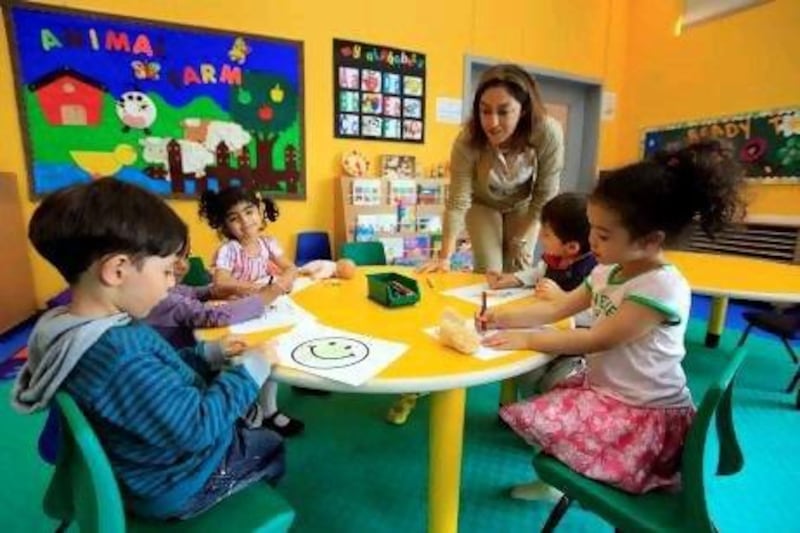ABU DHABI // Zayed University's state-of-the-art nursery will have a second purpose when it opens its Dh3.7 billion campus in September: as a live learning laboratory for its student teachers.
The centre will accommodate up to 150 children from the ages of 1 to 4 and serve as a teaching school for early childhood teachers as well as teachers and childcare professionals from around the emirate.
"It will provide a research environment to support knowledge development on early learning, language development, parent-child interactions and emergent literacy," said Dr Robin Dada, dean of education.
The facility in the capital will provide hands-on practice for the students, she said. Students will have "opportunities to observe children as they work and play, and learn to identify developmental benchmarks", she said.
Key research areas will include language, literacy and numeracy development and how young children manage multiple language environments.
It is not the first institution to offer a service to the community that helps its own teaching programmes. Sharjah Women's College (SWC) opened its nursery in September 2010 and now has more than 40 children, up to the age of four.
"It's been really important for the students because through the four years of the programme there's a teaching practice each semester with graduating levels of complexity," said Dr Georgia Daleure, head of applied arts at SWC, which includes the education department.
"First they observe, then they plan, then they teach. If we had to rely on schools, we could, but this facility here we can be sure of the quality."
During the first year of their course, students do one to three hours of practical work a week, advancing to four to eight hours on four days a week in their fourth year.
Four of the nursery's 42 children are the offspring of students at SWC, while seven are the children of staff.
One of the aims was to reduce student dropouts because of childcare issues.
"We have a history of attrition because of this," said Ola Feidi, the manager of the nursery. "This way they don't need to go home and breastfeed. It's private and quiet."
It also gives teaching students access to bilingual teachers, in classes of no more than 12 children.
The Ministry of Social Affairs took control of nurseries last year. Its spot checks ensure quality, said Mrs Feidi, in a sector that was until recently unregulated.
"A lot of problems were happening with unqualified people," she said.
The next step, said Dr Daleure, will be to offer courses for local professionals.
"We want to bring in people like school coordinators and show them what the best practices are and the facilities we have here, so that when they hire our graduates, they realise ... [they] can add value to their institution."
Dubai Women's College had also hoped to open a nursery, but funding has so far prevented it.
"In these times of economic restraint, sources of finance and sponsorship, both in the public and private sectors, are proving very difficult to identify," said Ian Boutler, head of education.
"While there is a great deal of moral support for the project in recognition of the benefits it will undoubtedly bring to both college students and the wider community, there just does not seem to be any organisations or institutions that can back this with cash."






